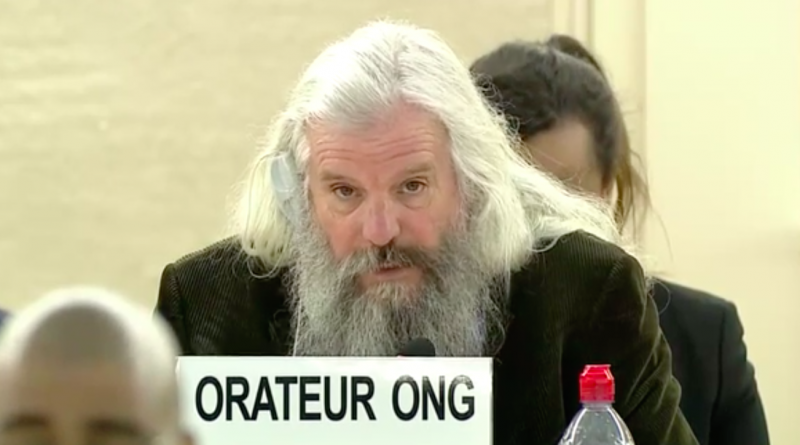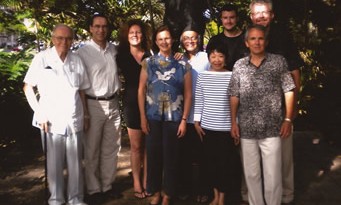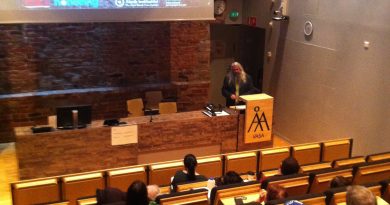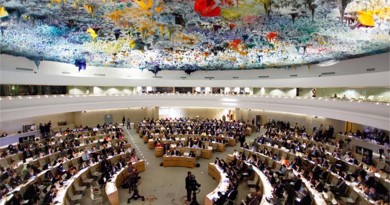Why the work of CGNK at the UN’s Human Rights Council is vital – and why it needs funding!
The latest session of the Human Rights Council was again a great opportunity to reinforce the awareness of the importance of life as expressed by the nonkilling principle. Building on our previous works – the Universal Periodic Reviews for the following countries and collaborations with other NGOs on conscientious objection – Christophe Barbey, our representative at the UN in Geneva delivered six oral declarations during the session.
First, we joined Conscience and Peace Tax International and the International Fellowship for Reconciliation to deliver a statement on the right to conscientious objection of mercenaries and employees of private military and security companies. Of course, proper use of conscience would call for avoiding joining foreign armies and private military security companies. However, if after joining these persons face human rights violations or consciousness motives, they need to be able to use their freedom of conscience and to have full access to conscientiousness objection rights. To our knowledge this is the first time this issue is raised at the UN.
Then, for Costa Rica, while congratulating the achievements of this marvelous country in terms of demilitarization, environment protection and human rights, we called for the country to become a fully nonkilling State. We will see how our call meets policy and comes to be in upcoming years.
For North Korea, as we have been doing ever since we began our work at the United Nations and in the Human Rights Council, we recalled that the Peace Conference planned for in the 1953 armistice agreement, that was supposed to happen within three months, has not yet taken place. We also strongly emphasized that North Korea, when becoming a member of the United Nations in 1990 committed the State of DPRK to be a peace-loving Nation and so forth to respect human rights as provided for in the spirit of the United Nations’ Charter and human rights conventions.
For Brunei Darussalam, we strongly recalled the essence of nonkilling, highlighting that killings and their reduction are measurable and that unnatural deaths are easily preventable. We highlighted, now and again, that the bases of life and of full respect for life are found within ourselves as they are well present in human knowledge and in the legal foundations of humanity. Brunei Darussalam is lagging behind on the ratification of life preserving treaties and since the campaign for the universal ratification of the genocide convention started, it is only the second country refusing to engage itself towards this ratification, towards universally banning genocide. We hope this will change in the near future.
For Norway, in a joint statement delivered by Conscience and Peace Tax International, we strongly recalled that climate change is a human rights issue and that because of that it can be discussed in the Universal Periodic Review. We added that Norway, as an oil and gas producing country has a special responsibility regarding climate change. We also called, again at this session, for the right to Conscientious Objection for professional soldiers serving either in the armed forces or in the private military or security companies. We also called for the creation of a peace fund where tax payers refusing to pay for military activities can pay the equivalent sum for peace and peace only.
Finally, the report on the Universal Periodic Review of Dominica, a small Caribbean island, has opened a new avenue for Nonkilling and for the protection of the right to life by abolishing the death penalty. During the period under review, Dominica has ratified the Genocide and Enforced disappearances conventions, a laudable move, moreover as done while recovering from two successive hurricanes. But Dominica, where no executions have taken place in a long time though the death penalty is still legal, also called for help to hold a national dialogue on the death penalty. Countries are rarely keen or ready to hold such dialogues as part of the population, sometimes influential, is not ready to give up with this nevertheless inhumane penalty. To our knowledge, no country in the world so far has accepted the challenge of supporting such a dialogue in Dominica. Bearing in mind our commitment to stop all sorts of killing, we did stand for the call and said we would explore or create the possibilities needed to organize such a dialogue there.
Now is the time to ask the question: would CGNK undertake such a project, a national dialogue in Dominica to end the death penalty? Will we take the lead and initiate it, find proper partners, make it happen and make it successful? The challenge is important, particularly because Dominica uses a model of constitution, inherited from the UK and the Commonwealth that clearly allows for killing in cases of arrest, escape, riot, insurrection, mutiny or to prevent criminal offences, a constitutional model too often present in similar countries. But constitutional change in Dominica regarding the death penalty would also be a strong incentive for many other countries. Waiting for your participation and support, we will then keep you updated on this very important project.
As you can read, the work at the UNITED NATIONS raises many key issues needed for Nonkilling, for the progress of life and of the right to life, for the creation of a culture of life. As we are the only organization having a comprehensive approach of life issues, we are able to attract attention on a central theme, life in a central position where all countries are present. By pinpointing small and big life issues, we raise awareness on possible progress. By doing so gently, with diplomatic tact, we approach leaders and deciders in a consensual manner, assuring progress rather than confrontation. Thus we create a lively environment, where life naturally and happily, intelligently expands and where killings regress or may regress.
This work has been done on a small stipend so far, but this is reaching its limits, to be able to continue, please support the nonkilling work at the United Nations through our crowdfunding. Thank you!




